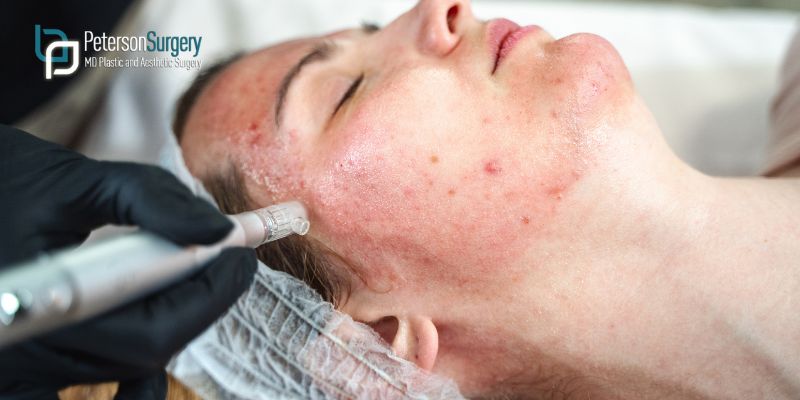Dermatological Problems: Banish Skin Woes Now!
A dermatological problem refers to any health issue affecting the skin, hair, nails, or mucous membranes. These conditions can range from acne to eczema and skin cancer.
Understanding dermatological problems involves recognizing the signs of skin distress and their potential causes. The skin, as the largest organ of the body, serves as a barrier to protect against environmental harm, but it can also be vulnerable to a variety of disorders.
Common skin issues include infections, inflammatory reactions, and chronic conditions that might require medical attention. Early diagnosis and treatment are crucial for managing dermatological issues effectively. With people increasingly seeking information online, awareness about skin health has become more accessible, prompting patients to pursue professional advice for skin concerns promptly. In today's digital age, staying updated on dermatological health is easier than ever, contributing to better skin care practices and overall well-being.

Credit: petersonmd.com
Skin Woes: A Universal Concern:
Skin conditions affect many people around the world. Dermatological issues range from mild rashes to severe acne.
Diseases like eczema and psoriasis cause not only physical discomfort. They lead to stress and low self-esteem too. Many feel unhappy about how they look.
Unveiling Common Dermatologic Enemies:
Acne often gets labeled as a teenage issue. Yet, it also troubles adults. Various factors like hormones, stress, and diet contribute to its persistence.
Dealing with chronic skin conditions such as eczema and psoriasis can be daunting. Eczema causes dry, itchy skin. Psoriasis leads to silvery scales on red patches.
Dermatitis brings an invisible itch that begs for scratching. It's a battle with an unseen enemy. Triggered by allergies or irritants, the struggle for relief is real.
Habits That Harm: Daily Routines Unchecked:
Many people wash their faces too much. This can strip the skin of its natural oils. Less is often more when it comes to facial cleansing. A gentle wash in the morning and at night suffices. Also, it's crucial not to forget about moisturizing. Skin needs hydration to stay healthy. Not using a moisturizer can lead to dry and flaky skin.
Applying makeup is an art, but it can clog your pores if not done right. Choose non-comedogenic products. These products won't block your pores. Remember to remove makeup before bed. Sleeping with makeup on can cause breakouts and skin irritation.
Exposure to the sun's rays can damage your skin. Always wear sunscreen, even on cloudy days. Ultraviolet rays can pass through clouds. Hats and sunglasses are your friends. They protect your face and eyes from harmful UV rays.
Modern Medicine To The Rescue:
Topical treatments have made huge improvements to skin health. Medicated creams and ointments are now more effective against dermatological issues. They can fix rashes, eczema, and psoriasis. Easy to apply, they work right where the problem is.
New biologic therapies are a major win for skin treatments. These drugs target specific parts of the immune system. They help with severe skin conditions that other medicines can't fix. They are given as shots or through IV.
Laser treatments offer high precision for skin care. Doctors use lasers to heal, reshape, and improve the skin. Lasers can get rid of scars, wrinkles, and unwanted hair. This technology keeps getting better and safer for patients.
Embracing Natural Solutions:
Natural remedies can often offer relief for skin problems. Herbal treatments, known for their healing properties, become key allies. Plants like aloe vera, chamomile, and lavender soothe and repair.
Eating healthy foods can make skin healthy too. Leafy greens, berries, and nuts are rich in skin-friendly vitamins and antioxidants. They work from the inside, for outer beauty.
Stress might hurt our skin without us knowing. Yoga and meditation can help. These activities reduce stress. Less stress means better skin health.

Credit: www.amazon.com
Transformative Daily Skincare Rituals;
Establishing a beneficial skincare routine is crucial for maintaining healthy skin. To start, identify your skin type and choose products that fit your needs. A daily cleanser should gently clear impurities without stripping skin moisture. Exfoliation twice a week can remove dead cells for a brighter complexion. Consistent hydration is key; apply a quality moisturizer daily to lock in moisture. Look for ingredients like hyaluronic acid and glycerin that boost hydration. For those with dry skin, consider a thicker cream. Oily skin types might prefer a light, oil-free lotion. Protecting your skin from the sun is vital. Wear a broad-spectrum sunscreen with at least SPF 30, even on cloudy days. Reapply every two hours, or after swimming or sweating. Opt for sun-protective clothing and seek shade during peak sun hours.

Credit: www.amazon.com
Frequently Asked Questions Of "dermatological Problem"
What Are Common Dermatological Problems?
Common dermatological problems include acne, eczema, psoriasis, and skin infections.
How To Prevent Dermatological Issues?
Maintain a consistent skincare routine, use sunscreen, stay hydrated, and seek regular check-ups with a dermatologist.
What Treatments Work For Skin Allergies?
Treatments include antihistamines, topical steroids, and avoiding known allergens to reduce symptoms effectively.
Can Diet Affect Skin Health?
Yes, a balanced diet rich in fruits, vegetables, and healthy fats can improve skin health and prevent issues.
Conclusion
Navigating dermatological issues can be daunting, yet it's essential for overall health. By staying informed and proactive, individuals can manage these conditions effectively. Remember, consulting a dermatologist is key for personalized care. Maintaining skin health is a journey worth taking for a happier, more confident you.

No comments